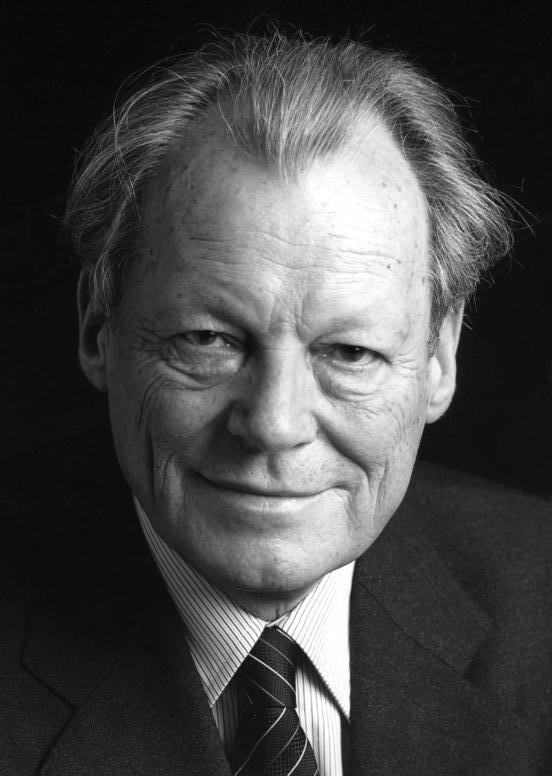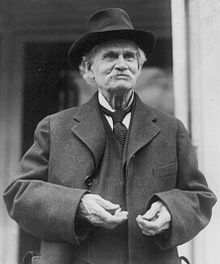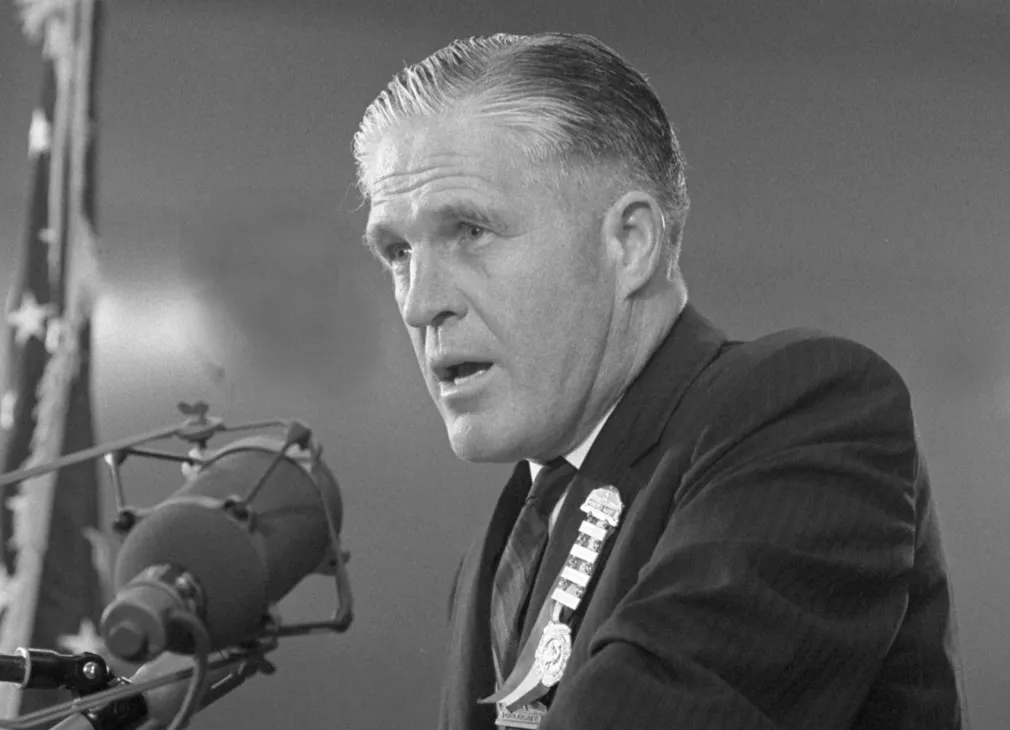
Character Information Sheet
NS Nation Name: Jovuistan
Character Name: Fred Stark
Character Gender: Male
Character Age: 64
Character Height: 6'3"
Character Weight: 223 lbs
Character Position/Role/Job: U.S. Senator From New Jersey (1943-1953) (1959-Present), Attorney General of the United States (1953-1957), U.S. Representative from New Jersey's 4th Congressional District (1937-1943)
Appearance:
Character State of Origin: New Jersey
Character State of Residence: New Jersey
Character Party Affiliation: Republican
Main Strengths: Veteran, pragmatic, intelligent, anti-segregation hero, popular with moderate Republicans
Main Weaknesses: Can come off as cold, despised by conservative Republicans and especially segregationists, smoking problem
Biography: Fred John Stark was born on March 17th, 1894, in Medford, New Jersey. His father worked at a glass factory to support the family while his mother stayed at home. Fred performed very well in his childhood education, always being amongst the top of his class, showing great promise. He was introduced to politics at a young age, frequently reading local and national newspapers. Teddy Roosevelt became his childhood hero, and he wanted to be just like him one day. Entering adulthood Stark moved to New Brunswick to attend Rutgers College where he graduated magna cum laude with a Bachelor of Arts in Political Science. While he was retained interest in a political future, he decided instead to pursue becoming an attorney, inspired by his lawyer relatives in Newark. He would be cut short of going to law school however when he was drafted to fight in the First World War.
Stark fought on the western front in 2018, reportedly being a brave soldier. Fighting in the war heavily altered Stark's worldview, making him tougher and much more patriotic, as well as more interested in international politics. Upon returning home, he went to the New Jersey Law School to obtain his JD and moved to Trenton with a fellow student named James Berg to form a firm called Berg & Stark, specializing in contract law. Berg and Stark worked as an effective dynamic duo, with Berg's powerful oratory skills matching well with Stark's analytical abilities and calculated legal maneuvering. The firm grew over the course of the 20s and 30s with an effective advertising campaign and a good record in the courtroom. During the 20s, Stark also frequently would sneak into Speakeasies around the area, which helped mold his liberal views on civil rights as he made good friends with multiple black people over those years.
After the Great Depression happened and seeing the rise of fascism and communism in Europe, Stark decided to revive his childhood dream of politics and run for election. He decided to run for New Jersey's 4th Congressional District as a Republican. Being well established in the community, he generally supported the New Deal policies and sought to market himself as a moderate Republican who would get things done in Washington. He faced a tough challenge in a brutal year for the Republican Party, but was able to narrow defeat his Democratic opponent by winning over moderate Democrats as well as swing voters.
In the House, Stark focused on working with the Democratic supermajority to pass bipartisan legislation primarily relating to the economy he co-sponsored the La Follette–Bulwinkle Act and the Hatch Act of 1939. When World War II broke out, Stark became known as one of the most hawkish members of Congress, notably saying in 1940 "I am aware that many feel uneasy at the prospect of another war, but it is very clear the Hitler and the Nazis are intent on seizing every part of the globe that they can, and I fear they may strike our soil if nothing is done." This put him at risk in the 1940 election during a wave of isolationist support, but he was able to hold on. He co-wrote the Lend-Lease bill and tried to muster up more Republican support for the bill. His fears were validated after the attack on Pearl Harbor by the Japanese.
In 1942, he was approached by state party bosses who urged him to run against the vulnerable Democratic Senator. While he was initially hesitant, he agreed to mount a campaign, and with Republicans making gains nationally, Stark was able to use his cross-party appeal to unseat the incumbent. In the Senate he worked hard to make his first term strong, playing a role in writing the Mustering-out Payment Act and the G.I. Bill to garner support from fellow veterans. He co-sponsored the Hill–Burton Act and was more willing to work with (Not-Truman) than most Republicans. He was incredibly notable for being one of the few Republicans to vote against the Taft-Hartley Act, which triggered an unsuccessful primary challenge and he was able to win re-election to a second term by a narrow margin. He also began to pick up a smoking habit in the early 1950s to deal with work-related stresses. He won't be putting down the cigar anytime soon, which may be the death of him in the future.
Stark was part of the Draft Davis movement and had personally urged Davis to run, feeling he was the best to handle the post-(Not-Truman) era and the Korean War. He was a close ally of the new President, campaigning for him in multiple northeastern swing states. Davis decided to reward his support by giving him the post of Attorney General. He was confirmed by the Senate with bipartisan support, and very quickly became a polarizing figure. He argued against racial segregation in Brown v. Board of Education and, while the final version was weakened by the Senate, drafted the proposal that eventually became the Civil Rights Act of 1957, establishing himself as a civil rights hero and a segregationist enemy. He was reviled by southern Senators, and as a last act against the segregationists, Stark pushed Davis to send the national guard during the Little Rock Crisis, choosing to step down the following month.
Stark had initially planned on retiring after his time as Attorney General, but once again Republican leadership pushed him to return to the Senate, believing him to be the only candidate capable of holding the seat. With rising tensions regarding civil rights, Vietnam, and the economy, Stark determined that he needed to get back into the Senate. The campaign was difficult, with Stark facing a formidable Democratic opponent. However, his support among the more pro-civil rights northerners in the state as well as liberals and moderates who would otherwise vote Democratic handed him the win, and now he has returned to his old job. With an effectively trashed relationship with his southern colleagues, Stark is considering a run in 1960 to block the rise of conservatism and lead America down a more measured path to victory at home and abroad.
Other Info: Married to Helen Smith, an early client of his as a lawyer. He has 3 children.
I have read and accept the rules of the roleplay: Jovuistan
Do Not Remove: 84721














